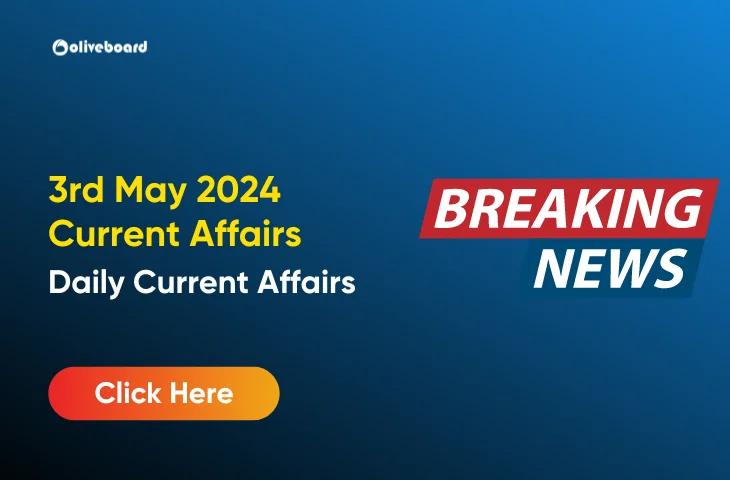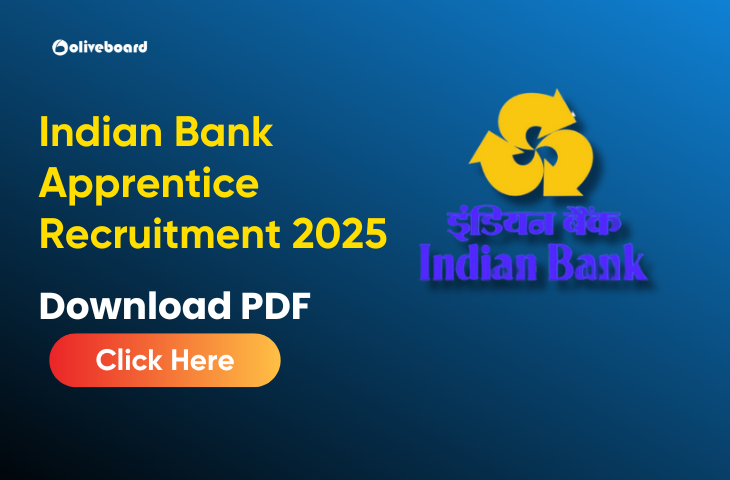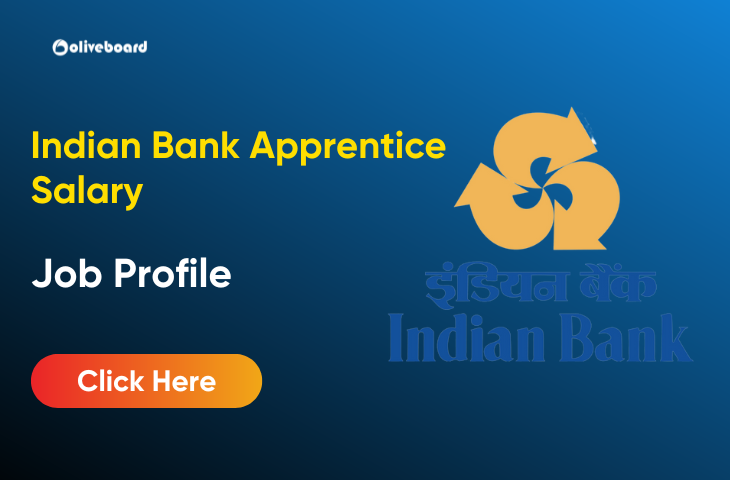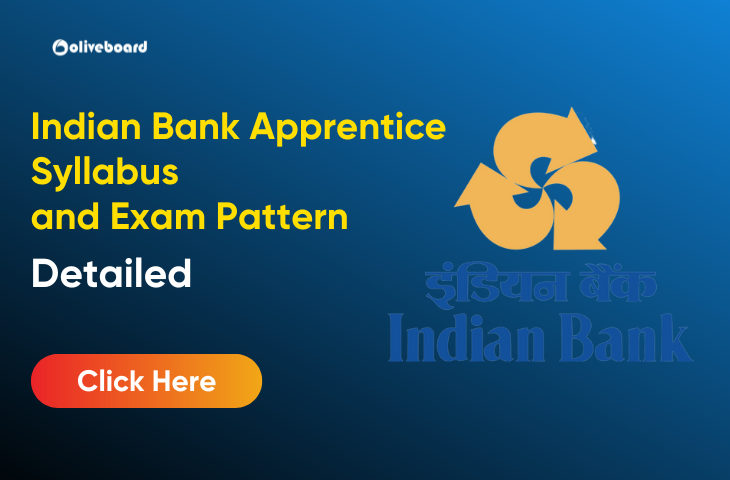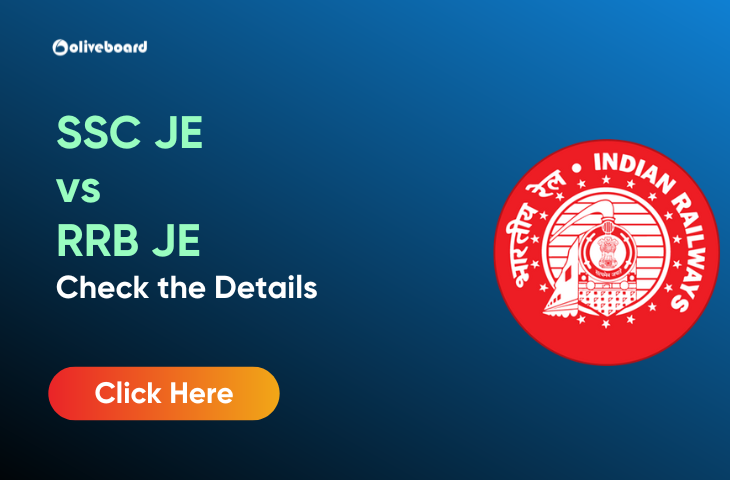3 May 2024 Current Affairs
3 May 2024 Current Affairs refers to the latest news and events happening worldwide and are relevant to our daily lives. Staying updated with the 3 May 2024 Current Affairs is essential for students who are preparing for exams, especially competitive exams, as it forms an important part of the syllabus. The importance of the 3 May Current Affairs lies in its ability to help students enhance their general knowledge, improve their reading and comprehension skills, and develop their critical thinking abilities.
3rd May Daily Current Affairs 2024
03 May 2024 Current Affairs also provides students with insights into issues such as politics, economics, and social issues that are important for their overall development as informed citizens. Regularly reading and analyzing the 3 May 2024 Current Affairs not only helps students ace their exams but also prepares them for their future roles as responsible and well-informed citizens of society.
World Press Freedom Day 2024

World Press Freedom Day happens every year on May 3. It’s a day to appreciate the important work of journalists. The United Nations created this day to highlight the basic principles of press freedom worldwide. By celebrating World Press Freedom Day, journalists and supporters of democracy help protect freedom of speech, access to information, and media independence, which are constantly under attack globally. This day also honors journalists who lost their lives while doing their jobs. Let’s use this day to encourage those who want to learn how to be the voice for others and provide them with educational resources. Read the complete article here.
Adani Green Energy Secures $400 Million Finance From International Banks
Adani Green Energy Ltd (AGEL) said it has secured USD 400 million in finance from a consortium of five international banks for its under-construction solar projects of 750 MW in Gujarat and Rajasthan. One of the projects is being developed in Rajasthan with 500 MW capacity and has a long-term power purchase agreement (PPA) with Solar Energy Corporation of India (SECI).
The second one, with 250 MW capacity, is a standalone merchant power project being implemented at the world’s largest RE cluster in Khavda, Gujarat. The consortium of lenders includes Cooperative Rabobank U.A., DBS Bank Ltd, Intesa Sanpaolo S.p.A., MUFG Bank, Ltd., and Sumitomo Mitsui Banking Corporation.
AGEL has a 10,934 MW operational portfolio, the largest in India, delivering reliable, affordable, and clean power to the national grid. AGEL’s operational portfolio consists of 7,393 MW solar, 1,401 MW wind, and 2,140 MW wind-solar hybrid capacity.
NPCI inks pact with Bank of Namibia for developing UPI-like instant payment system
NPCI International Payments Limited, the international arm of the National Payments Corporation of India (NPCI), agreed with the Bank of Namibia to develop an instant payment system like a Unified Payment Interface for the African nation.
This partnership marks NPCI’s first-ever collaboration with a central bank to deploy the UPI stack.
The collaboration is aimed at developing real-time person-to-person (P2P) and person-to-merchant (P2M) transactions in Namibia. The agreement aims at improving accessibility, affordability, connectivity with both domestic and international payment networks, and interoperability of payments.
HDFC Life announces the ‘No Jhanjhat Life Insurance Fatafat’ campaign
HDFC Life, a leading insurer in India, has unveiled its latest campaign, ‘No Jhanjhat Life Insurance Fatafat’. This campaign promises a seamless and swift life insurance purchasing experience, tailored for today’s fast-paced world. Leading the charge in innovation, HDFC Life leverages cutting-edge technology to enhance accessibility and convenience.
RBI imposes monetary penalty on three co-operative banks for rule violations
The Reserve Bank of India (RBI) on May 2 said it has imposed monetary penalty of three co-operative banks for rule violations. These banks are Lokmangal Co-operative Bank, The Udgir Urban Co-operative Bank, and The Satara Sahakari Bank, RBI said in a release.
The central bank imposed Rs 5 lakh penalty on Lokmangal Co-operative Bank, Rs 2 lakh on The Satara Sahakari Bank, and Rs 1 lakh on The Udgir Urban Co-operative Bank, the release said. A monetary penalty on Lokmangal Co-operative Bank was imposed as the bank did not carry out periodic review of risk categorization of accounts and did not carry out periodic updation of KYC as per the risk.
Indian Oil Corporation to Invest Rs 5,215 cr in Green Power
Indian Oil Corporation announced plans to invest ₹5,215 crore in developing 1 GW of renewable energy capacity in India. The investment, approved by its board, will focus on standalone ground-mounted solar, onshore wind, or wind-solar hybrid projects in phases.
Indian Oil will contribute ₹1,304 crore in equity for the initiative, housing its renewable energy business in a wholly-owned subsidiary. Recently, the company signed a preliminary pact to build a joint venture with Japan’s Panasonic to manufacture lithium-ion cells, to serve two- and three-wheelers.
RBI approves re-appointment of Atanu Chakraborty as part-time Chairman of HDFC Bank
The Reserve Bank of India has approved the re-appointment of Atanu Chakraborty as part-time Chairman of HDFC Bank for three years with effect from May 5. Under the aforementioned approval by the RBI and based on the recommendation of the Nomination & Remuneration Committee, the board of directors of the bank approved Chakraborty’s re-appointment.
RBI announces 8% interest on Floating Rate Bond 2034
The Reserve Bank of India (RBI) has announced an 8% interest rate on the Floating Rate Savings Bond (FRSB) 2034. This is a variable-rate bond, and the interest rate will be reset every six months. The Government of India is issuing a special type of bond called a Floating Rate Bond (FRB) that matures in 2034.
Unlike regular bonds with a fixed interest rate, this bond’s interest rate will be adjusted every six months. The interest rate is based on the average yield of recent auctions for short-term government debt (called Treasury Bills). It moves with market conditions. For the next six months, the interest rate on this FRB bond will be 8%
These FRB bonds can be a good option for investors who want an interest rate that reflects current market conditions.
FRBs have a maturity period of seven years. The minimum investment amount for FRBs is Rs 1,000, while there is no maximum limit. FRBs are backed by the government of India, making them one of the safest investments.
Interest on these bonds is paid semi-annually on January 1 and July 1 each year
Zimbabwe’s ZiG is the world’s newest currency
Zimbabwe launched the ZiG in April, which is backed by the central bank’s reserves comprising 100 million U.S. dollars in foreign currency and 185 million U.S. dollars worth of gold. The ZiG, Zimbabwe’s sixth attempt at a currency solution, is expected to stabilize the economy and help tame inflation.
The highest denomination of the new currency, known as Zimbabwe Gold or ZiG, will be the 200 ZiG note, valued at approximately $15.
RBI allows standalone primary dealers to borrow in foreign currency
The Reserve Bank of India (RBI) allowed standalone primary dealers (SPDs) to borrow in foreign currency from their parent companies and entities it has authorized. They may access overdraft facilities in nostro accounts solely for operational use, the regulator said.
Nostro is a bank account held in another country by a domestic bank but in the currency of a foreign country. An SPD dealing in euros would open an account with a bank in the European Union for transaction settlements. As of March 31, 2023, there were seven SPDs, registered as non-banking financial companies (NBFCs) with the RBI.
The RBI has also included SPDs within the scope of norms for risk management and inter-bank dealings, enabling them to engage in foreign exchange products. SPDs were in 2018 authorized to offer forex products to clients, including foreign portfolio investors. SPDs have been classified as Authorised Dealer Category-III.
A board of authorized dealers may set the Net Overnight Open Position Limit (NOOPL) for calculating the capital charge on forex risk. However, such limits should not exceed 25% of the dealer’s total capital (Tier-I and Tier-II capital).
- Indian Bank Recruitment 2025 Out for 1500 Apprentice Posts
- Indian Bank Apprentice Salary 2025, Pay Scale, Salary Structure
- Indian Bank Apprentice Syllabus & Exam Pattern 2025, Check Details
- Railway RPF Syllabus 2024, Check Exam Pattern, Topic And Syllabus
- SSC JE vs RRB JE, Which Is Better? Know Detailed Comparison
- SSC CGL Study Plan 2025 For Next 25 Days With Tips, Tricks

Hello, I’m Aditi, the creative mind behind the words at Oliveboard. As a content writer specializing in state-level exams, my mission is to unravel the complexities of exam information, ensuring aspiring candidates find clarity and confidence. Having walked the path of an aspirant myself, I bring a unique perspective to my work, crafting accessible content on Exam Notifications, Admit Cards, and Results.
At Oliveboard, I play a crucial role in empowering candidates throughout their exam journey. My dedication lies in making the seemingly daunting process not only understandable but also rewarding. Join me as I break down barriers in exam preparation, providing timely insights and valuable resources. Let’s navigate the path to success together, one well-informed step at a time.
